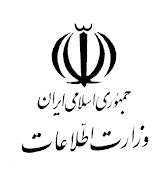Muslim-American organizations demand inquiry after informant exposed
(MSNBC)
March 6:Former Secretary of State Madeline Albright joins the Morning Joe gang to evaluate Hillary Clinton's early performances as the top U.S. diplomat.
SANTA ANA, California - The revelation that the FBI planted a spy in a Southern California mosque was explosive news in a Muslim community that has long suspected the government of even broader surveillance.
Muslim-American organizations have demanded an inquiry. Some say the news has rattled their faith in American democracy.
Despite the reaction, former FBI agents and federal prosecutors say spying on mosques is still one of the government's best weapons to thwart terrorists and that the benefit to national security is likely to far outweigh any embarrassment to the agency.
"What matters to the FBI is preventing a massive attack that might be planned by some people ... using the mosque or church as a shield because they believe they're safe there," said Robert Blitzer, the FBI's former counterterrorism chief.
"That is what the American people want the FBI to do," he said. "They don't want some type of attack happening on U.S. soil because the FBI didn't act on information."
One of the most-heralded U.S. terrorism convictions, for example, grew out of the work of an informant who spent months inside a New Jersey mosque and derailed a plan to blow up New York City landmarks. Radical Egyptian cleric Omar Abdel Rahman was sentenced to life in prison in 1995. He was also the spiritual leader for the men convicted in the 1993 bombing at the World Trade Center.
"A lot of what happened was planned in the mosque," said Andy McCarthy, who was lead prosecutor on the case. "The recruiting went on in the mosque, a lot of the instruction went on in the mosque, we even had gun transactions in there."
California case comes to light
In the California case, information about the informant who spied on the Islamic Center of Irvine came out last week at a detention hearing for a brother-in-law of Osama bin Laden's bodyguard, an Afghan native and naturalized U.S. citizen named Ahmadullah Niazi.
Niazi, 34, was arrested Feb. 20 on charges of lying about his ties to terrorist groups on his citizenship and passport applications. He will be arraigned Monday in U.S. District Court in Santa Ana.
FBI Special Agent Thomas J. Ropel III testified at the hearing that an FBI informant infiltrated Niazi's mosque and several others in Orange County and befriended Niazi. Ropel said the informant recorded Niazi on multiple occasions talking about blowing up buildings, acquiring weapons and sending money to the Afghan mujahadeen.
Niazi has not been charged with terrorism and it's not yet clear if the FBI was focused on anything beyond his activities. Neither the mosque nor any other of its members have been charged.
A 46-year-old fitness instructor told The Associated Press last week he was the informant. Craig Monteilh of Irvine said Niazi talked about blowing up buildings and discussed sending Monteilh to a terrorist training camp in Yemen or Pakistan.
Monteilh said his tenure as an informant ended after Niazi and other members of the Islamic Center of Irvine reported him to authorities. A Muslim advocacy group has demanded a federal investigation into whether Niazi was arrested because he refused to become an FBI informant after telling the agency about Monteilh.
Muslim leaders suspected infiltration
Local Muslim leaders say they had suspected since at least 2006 that the FBI was trying to infiltrate the Islamic Center and other Muslim organizations.
Some community leaders, worried that they were being watched, filed a Freedom of Information Act request with the FBI in 2006 seeking surveillance records on themselves. They are still engaged in litigation over the request, said Shakeel Syed, executive of the Islamic Shura Council of Southern California.
"We suspected this was happening," said Syed, who suspects his home and office phones are wired. "What these guys have done is create an environment where every person begins to suspect the other and with the infighting and inward suspicion, the community becomes it's own victim."
A spokeswoman for the FBI's Los Angeles bureau, Lourdes Arocho, had no comment.
Former FBI agents, however, said that although the law places almost no constraints on the use of informants, the agency takes sending an informant into a mosque very seriously and imposes a higher threshold for such requests.
Agents would have to have credible and specific information about criminal activity inside a mosque or being committed by a mosque member before sending a plant in, said Steven Pomerantz, former assistant director and chief of counter terrorism for the FBI.
Such a request would also be approved by the highest-ranking agency officials, former agents said.
"You just wouldn't go sending informants willy nilly into mosques just to determine what was going on," Pomerantz said. "You have to have some articulable reason or basis to do that."
9 years ago













No comments:
Post a Comment